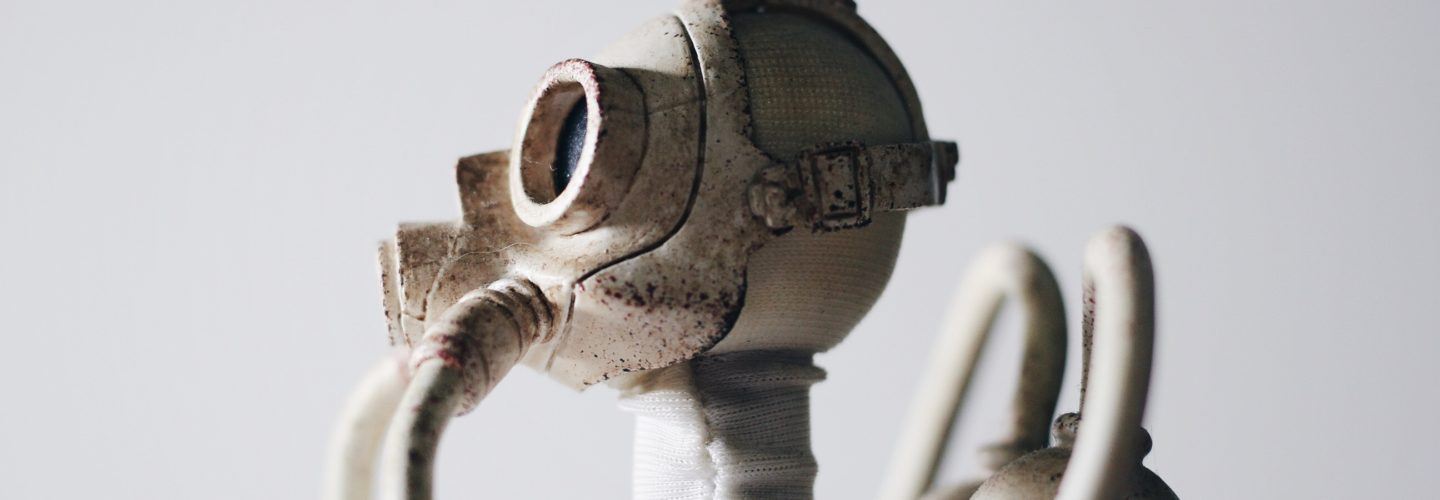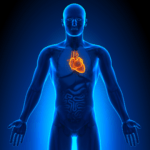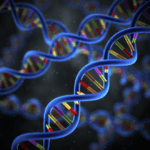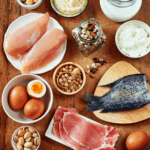In 2013 I gave a presentation at the Institute for Human and Machine Cognition (IHMC) in Pensacola, Florida. Ken Ford, the CEO and Founder of IHMC, is a remarkable person and I could not wait to meet his team and see their research. IHMC does cutting edge work, primarily for the Department of Defense (DoD). I had an exhilarating day which culminated with a presentation I gave to the team and also the public.
Want more content like this? Check out our interviews with Kristin Neff on the power of self-compassion and Esther Perel on the effects of trauma.
The talk I gave was a first timer. (Usually the first two or three times I give a talk it’s not very good, as I need to work out some kinks.) However, since the talk was recorded I’ll set my perfectionist tendencies aside and share it, below. The talk is about an hour, and the Q&A session was also recorded.
A month or so before the talk, I asked Ken what he wanted me to talk about and he suggested I speak about human performance and resilience – both topics of importance for the DoD. I don’t consider myself an expert in either of these topics, but I certainly appreciate the need to maximize, or least optimize, both. Rather than give a highly technical talk, I chose to give a slightly technical talk that focused more on my own journey in this space and some of the experiments I’ve done on myself, specifically those around energy utilization. This talk does not present all of the data on my self-experiments, of course, but hopefully it gives you a sense of what kind of data can be gathered for studying energy utilization. In subsequent posts I’ll likely delve further into the data that support these findings and expand on a few of the tangents not fully explored here. For “regular” readers of this blog, the first half of this presentation is pretty basic, but the second half should offer novel info. For new readers, hopefully the entire talk will be informative.
For those reading via email, here is the presentation:
Photo by Siyan Ren on Unsplash






Just wondering if you have read “Wheat Belly” by MIchael Davis, MD. and what you think of it. Thanks.
Yes, and I know Bill Davis (not Michael) personally. Very good guy and excellent doctor. This was not really the book he wanted to write, but the publishers made him tone it down and simplify it overly to reach a broader market.
Hi Peter,
Thanks for the great presentation. Just wondering, is there a reason you exercise before eating? Also, I noticed in your presentation, that following your second meal, your Ketone levels appear to decrease. While in the periods following both breakfast and dinner your Ketone levels rise. Why is that?
Thank you in advance.
I need to get my workouts done early in the day, or they won’t get done. BHB goes down if HGO goes up; BHB goes up if the workout is not particularly intense (typically below 50-60% of VO2 max). See 2 part series on interplay of exercise and ketosis from about a year ago.
I loved this! Thank you! I have been in ketosis for over a year now, and I don’t think I will ever go back to carb burning.
Can you tell me how blood CO2 relates to exhaled CO2? My blood CO2 is chronically lowish, but since burning fat produces less CO2 than burning carbs, this could be considered normal and expected, correct?
Thanks again!
Here you go: https://en.wikipedia.org/wiki/Bicarbonate_buffering_system
Just came across this video on another blog so just started following yours today. I haven’t read all of the comments and don’t know much about the ketonic process other than what I learned from your talk. I do know when I cut carbs and worked out hard, my sweat had an ammonia smell. Is that a sign of ketosis or something else? I have read conflicting points on the internet and would rather ask you. Thanks for the great info!
Peter: THANKS so much for a fantastic and incredibly information packed blog! I was wondering about this study by Susanne Holt, https://ajcn.nutrition.org/content/66/5/1264.full.pdf, which I think you have referenced in previous posts, about all foods, even protein, causing spikes in insulin. My question is this (I have scoured your site and many others, plus Gary’s GCBC and Lustig, and have not found an answer): if insulin does in fact go up following protein ingestion, do we even care as long as there is not glucose floating about due to eating carbs? In other words, does the low carb, high fat, not-too-high protein approach protect from insulin spikes from protein ingestion?
Insulin is only part of the story. An insulin spike in the presence of protein is more like to drive anabolism of muscle than, say, DNL. Also, there is a quantity difference between “excess” protein and “excess” carb, though Bray et al, showed in early 2012 (JAMA, I believe) that high protein overfeeding will lead to adiposity.
Hi Peter,
Great video, I’ve been speaking about this to swimmers for a while now and this really sums it up. I’m doing a English Channel relay next week and have been in ketosis for a while now. I completely get what you say about loving the feeling of being in ketosis. I also am using superstarch as they finally have a UK supplier and it was really worth waiting for. One unexpected bonus has been the complete lack of hunger for hours after swimming. Usually, after a 2 hour swim, I’m fairly hungry but now, I can not eat for hours afterwards and not even notice it. I wonder if there would be a market for this as a meal replacement?
I would really be interested to see a solo channel crossing on superstarch. I know Prof Noakes has said that in theory you could do a solo without feeding. Any thoughts on that?
I think it would be possible, but only at a very low RQ, basically 0.72-0.73 and it would require a pretty good day for a sub-11/12 hour crossing. Superstarch would be better suited for a channel crossing than the garbage I drank when I was swimming channels.
Peter,
Excellent presentation! You did a fabulous job keeping it at the right level of detail for someone that is not a physician, and you really got me thinking about ketosis.
I have cycled through “slow carb” and “paleo” versions of low carb diets with great results on body composition but found varying degrees of difficulty in sustaining them due to extensive travel and general time required to plan/prep meals.
Do you have specific guidance around sustaining a ketogenic diet when traveling and have you found any downsides to being in ketosis for prolonged periods of time?
Thank you!
G
I do have a strategy for staying in ketosis while traveling (i.e., basically needing to purchase most food). Probably need to blog about it at some point. Biggest drawback I find to sustained ketosis is food fatigue.
Peter
I have a question about BHB levels achieved in the adapted ketotic state as to whether it is a case of ” some is good so more must be better”. Are there additional benefits that accrue as you get higher levels of blood ketones? I guess if one was ketogenic for therapeutic reasons such as neurological or mitochondrial disease or cancer mitigation one might assume the answer was yes, but even in epilepsy management which appears to have the longest track record of research, there is a very little on dose vs response, and only some suggestion that there is a “threshold” for effect.
For the average healthy person who is on a KD, is there any benefit in pushing for as high levels as possible? I usually toddle along at around 1.5 to 2.5 mmol BHB, but last weekend managed to get up to 5.6 by dint of a 24 hour fast followed by a fatty lunch and lots of coconut cream and a 16km run – doable but maybe it’s unnecessary. What do you think?
Hi Peter,
NuSi is on an amazing mission and best of luck to you.
I have a question about your talk: will a ketogenic diet still be beneficial for someone who does not exercise that much?
Will address in the future.
Hi, Peter.
I wanted to comment to request that you add the video in this post to your media page. It’s a really great video and when I went back to rewatch it today I couldn’t remember which post it was in. That’s going to become more of a problem as you continue to post new great content.
Thanks for what you do!
SW
First of all, congratulations for thinking outside the box and trying to support your findings and claims with real science.
I’m a Family Doctor that likes to train for triathlons. But I’m really not as efficient and dedicated as you are. I did, and do struggle with my weight. My solution that brought me down 15 Kg was a protein diet. With the same goal, getting into ketosis. Enough protein to not lose muscle tissue and ketosis, so I was not hungry. Also no carbs but differently, also very little fat. So all together, very low in calories. My goal was to get down 20 Kg. Instead I gained 2 Kg after the diet and every holiday I take I gain 4-5 Kg. So always back to protein after a holiday.
I’m now back to my diet and trying your approach. Just to see if I can eat more and still get to my real goal of losing another 9 kg en arrive at 8-10 percent fat (who knows even less). After my diet I did a dexa that told me I was 67 Kg and 19.1percent fat. So there is work to do.
After your presentation I have a few questions. I also did a cycling test and my RQ starts at 1.04 and ends 1.51. My vo2 max is 3032 ml/min at that time my VCo2 was 4487. Vo2/Kg=45. Also my max output was only 260 watt. So I’m not a very good trained athlete and certainly not at the time of the test.
But the question is, is my RQ this high because I was eating carbohydrates? (no diet at that time) Or is this also the difference in fitness? You see I like numbers too, so I will do a new dexa and cycling test to compare my numbers.
Second question is, do you have to train your body in ketosis to learn it to burn fat? Or does this ability come automatically once your body is producing enough ketones, just because you do not eat carbohydrates anymore, and eat enough fat.
And, final thought, looking at this as a diet will still make it difficult for a lot of people to keep their results. Because carbohydrates are everywhere. And I (still) like them. That’s why I gain so much weight during a holiday. Hopefully our industry invests in wheat alternatives (like the sweeteners for sugar) so I can keep eating Cake and muffins. And once in a while I have to eat french fries.
RQ is largely driven by dietary composition. The lower the RQ, the less CHO and more fat. Fat has RQ of 0.7, protein and BHB higher, CHO closer to 1.
Very much agree with your last point. It’s tragic that some of the foods most harmful to at least two-thirds of us are the cheapest, most ubiquitous around.
Hi Peter,
Thanks so much for generously sharing your work. I really enjoyed the delivery and content of your talk.
From the perspective of a lay person to nutrition, but a competitive powerlifter who needs to dabble in keto here and there, it’s utterly refreshing to come across exploratory research like yours, that is so thorough but also clearly and openly presented.
Cheers,
Dan
Appreciate your comments, Dan.
Hello Peter
Usually im just a lurker in your blog and several other regarding topics about nutritional ketosis, cuantified self, etc.
But this talk was so amazing that I had no other choice but to congratulate you.
You seem like an amazing person.
Thank you for your honesty and inspirational work.
Kind Regards
Diego
Diego, very kind of you to say. I’m glad the talk was helpful.
I have PD (diagnosed 14 years ago) and have been treating with 12 TBS coconut oil daily.. A ketogenic diet is much too complicated to do on my own. I use the post-exercise ketosis process every morning to stop my tremor by briskly walking 5km in 50 min. You posed an interesting question and I didn’t find the answer on your blog. Can carbohydrate and high ketone levels co-exist ? If so what foods should I eating ? My conclusion is that protein and high quality carbs are the best answer for a non-ketonic diet.
It’s relative, but under 2 conditions I can think of: very LONG and vigorous exercise, and with the use of exogenous ketones.
Since I am already supplementing ketones levels with coconut oil, it would seem then that the only way to maximize the ketone therapy is to reduce carbohydrate consumption.
I have been ingesting coconut oil for five months, currently a dosage of 10-12 TBS per day. Two more questions:
(1) Am I already in a ketogenic adapted state ? Or do I have to be cold turkey on carbs for this process to occur
(2) Would it be prudent to scale back my exogenous intake while pursuing nutritional ketosis.
Hi Peter,
I am learning so much form you site and from Gary’s book, Good Calories, Bad Calories. Thank you.
Question: I have been low carbing since 11/3 when I discovered my a1c was 5.8, so it is new for me.
In that short interval my a1c has gone to 5.7 and my lipid panel went from meh to great. But,
my heart rate has gone up a lot. Previous resting rate around 60, now it is 80. Is this an electrolyte thing? I have added Mg (500mg), K (trying to get to somewhere near my pre-low carb high fruit intake), Ca (500 mg) and more salt in food, etc. What are your thoughts?
Thank you.
Christie
I can’t really say, Christie, but my first guess would be plasma volume contraction — basically dehydration. You probably need to be drinking more water.
Thank you Peter, I will give that a shot.
Thank you again for all the wonderful information you are sharing; it is helping me in my quest for deeper understanding of my metabolic syndrome and helping me to implement changes that are improving my health.
Christie
Peter,
I’m getting fasting ketones 2-3 mM/l and fasting glucose 65-75 and still improving. I am not totally without keto-adaptation symptoms yet so I still have a way to go.
I have one burning question however. Can you identify how you managed to get such low fasting glucose and high fasting ketones on some days, as shown in your scatter plot ? Was it the long extended Sunday bicycle rides that showed up the next morning ?
Almost always the result of sustained high-end aerobic activity.
Can anyone recommend the best way to measure blood ketones or beta hydroxybutyrate at home? Which home testing systems are easy to use and accurate?
Precision Xtra ketone and glucose meter is still being given away free – you get the ketone strips online from Canada(least cost)
https://www.choosefreestyle.com/
Peter.
In your blog entry about your bike vo2 experiment and ketosis (no comments enabled there so thats why Im asking here). You started with “it seemed possible that I should be able to get by utilizing far more fat than glycogen for aerobic activity”. Does this mean that our muscles only burn glycogen – glucose stored in muscles and are not able to burn glucose in blood?
I greatly care about anaerobic performance (strength and high interval related) and am studying about it last couple of days. I’ve learnt that under heavy load muscles first rely on ATP-CP stores and then start to oxidize glycogen without presence of oxygen, to produce ATP as fast as possible (regular glycogen oxidation – glycolytic is not fast enough). That is most likely the reason why fats cant be burnt during anaerobic activity because cells cant convert it to ATP so fast as they can glycogen. I also understand glycogen needs to be replenished before a next workout/session otherwise performance might suffer as you also pointed out in your blog about carbs and ketosis.
What I cant figure out and finding info on it is very hard; what about liver glycogen and its relation to anaerobic exercises. Does anaerobic activity and recovery after it depends on liver glycogen, eg does it need to be full for optimal body functions? Or is this where gluconeogenesis comes into play and does the job?
I’ve read that there are some muscles in intestine system only work on blood glucose, true? Also in the lecture in this video you’ve shown a graph from a man fasting for 40+ days and his blood glucose quickly dropped but then remained the same. In the video you said you will not get into explaining why this happens, but did you explain this somewhere else, I am also eager about it.
Hi Peter,
Thanks again for all the excellent information on your blog! I’m going to try the 10 day challenge from the Fed Up documentary, and I’ll see if I can stick with eliminating added sugars for once. Alas, I eat mostly fast food, and I’m worried about CAD, yet I’m only in my early 30s. Having anxiety issues doesn’t help the matter. Anyway, regarding endurance exercise, a lot of people in the paleo talk about intense exercise for a brief period of time, e.g., 20-30 minutes. I’ve heard Art DeVany say that long distance running and such can damage the heart and is extremely dangerous. Is there any evidence to back this up? I used to run and cycle all the time, which seemed to reduce my stress and anxiety levels dramatically. However, I hardly exercise because of some of the negative information that I’ve read. Thanks for your time!